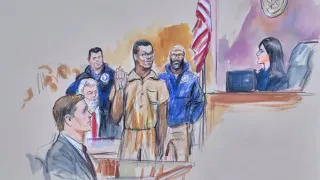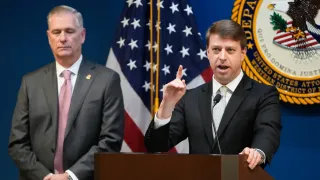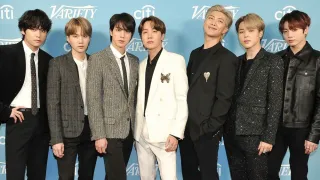January 14, 2020
Supreme Court Rejects Appeal in Texting Suicide Case
READ TIME: 2 MIN.
The Supreme Court on Monday left in place the conviction of a Massachusetts woman who sent her boyfriend text messages urging him to kill himself.
Michelle Carter is serving a 15-month sentence after being convicted of involuntary manslaughter in the 2014 death of her boyfriend, Conrad Roy III. A judge determined that Carter, who was 17, caused the death of the 18-year-old Roy when she ordered him in a phone call to get back in his carbon monoxide-filled truck that he'd parked in a Kmart parking lot.
The phone call wasn't recorded, but the judge relied on a text Carter sent her friend in which she said she told Roy to get back in. In text messages sent in the days leading up to Roy's death, Carter also encouraged Roy to follow through with his suicide plan and chastised him when he didn't, Massachusetts courts found.
The case has garnered national attention and sparked legislative proposals in Massachusetts to criminalize suicide coercion.
Carter's lawyers argued in their Supreme Court appeal that the conviction should be thrown out because it was an "unprecedented" violation of her free speech rights that raised crucial questions about whether "words alone" are enough to hold someone responsible for another person's suicide.
The lawyers also argued there was simply not enough evidence to prove Carter urged Roy to to get back in his truck to die, or that he would have lived if she had called for help or taken other actions to try and save his life.
Joseph Cataldo, one of Carter's lawyers, said Monday's decision was an "injustice" and that the legal team is weighing its next steps. He didn't elaborate.
"The Court passed on the rare chance to clarify an outdated and confusing exception to the First Amendment, which has divided courts around the country," said Daniel Marx, another one of Carter's lawyers. "It also missed an invaluable opportunity to address the toxic combination of mental illness, adolescent psychology, and social media that was at the heart of this suicide case and will likely lead to additional tragedies in the future."
The court's decision was welcomed by Bristol District Attorney Thomas Quinn III, whose office prosecuted the case.
"The US Supreme Court's decision today brings closure to the family of Conrad Roy for his tragic death. I hope that the finality of this decision brings some solace to them," he said in a statement.
Carter has been serving her sentence at the Bristol County House of Correction in Dartmouth, Massachusetts.
She was initially set to be released in May, but is now scheduled for release Jan. 23, according to a spokesman for the Bristol County Sheriff's Office.
Jail officials said Carter has accrued enough "good time" credits for good behavior and attending programs while incarcerated after she was denied parole last September.
"Ms. Carter continues to attend programs, is getting along with other inmates, is polite to our staff and volunteers, and we've had no discipline issues at all," Jonathan Darling, a spokesman for the sheriff's office, said in an email.






